CQC inspection at Plymouth hospital amid critical incident
- Published
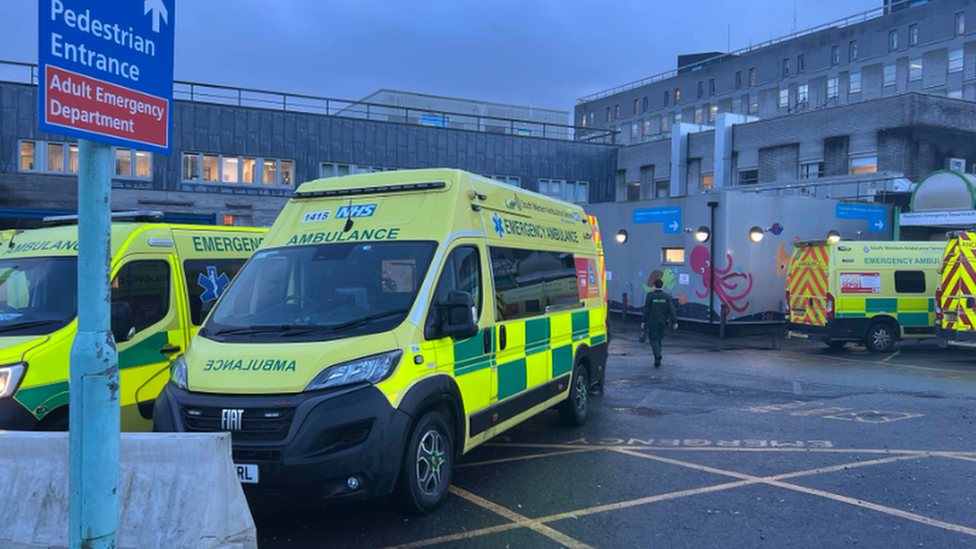
University Hospitals Plymouth NHS Trust announced its latest critical incident on 10 March
The healthcare watchdog has confirmed it is undertaking an inspection at Derriford Hospital in Plymouth.
University Hospitals Plymouth NHS Trust (UHPNT) announced a critical incident on Sunday - due to high occupancy in the hospital.
The critical incident was subsequently stood down on Thursday, external, it said.
The Care Quality Commission (CQC) said it was inspecting the hospital's emergency department.
It said its findings would be published in a report once the inspection had been completed.
UHPNT confirmed the inspection was being carried out following a previous inspection of its emergency department in September 2022.
A critical incident, the highest alert level, is declared when health bosses are concerned they cannot provide priority services.
UHPNT said on Sunday the emergency department at Derriford Hospital was "very full" and directed those who did not have an emergency or life-threatening condition to other healthcare services.
Prior to the most recent critical incident, the trust declared a critical incident on 22 February, external due to the Keyham bomb, on 7 February for two days and on 22 January, which lasted for eight days.
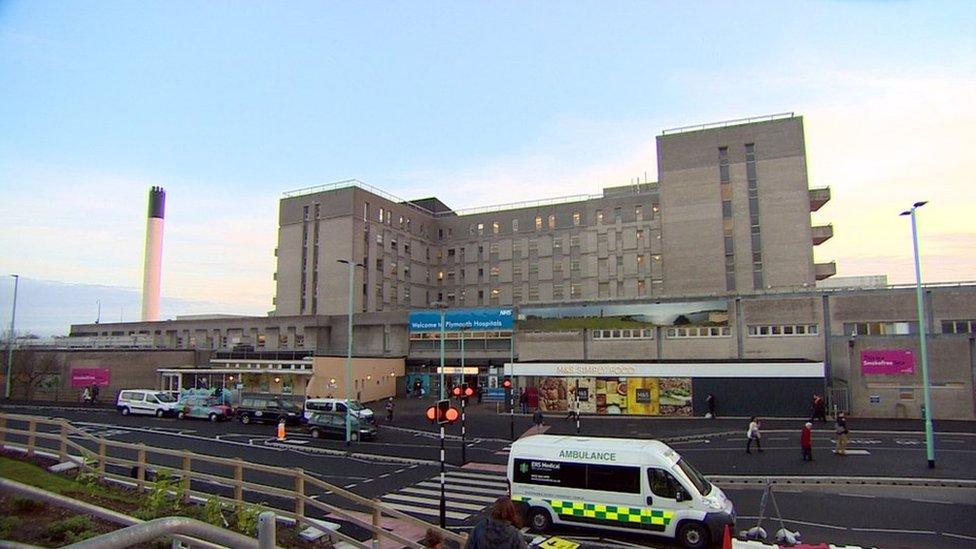
University Hospitals Plymouth NHS Trust said its emergency department at Derriford Hospital was "very full"
The CQC said the ongoing inspection was part of its monitoring of services.
Announcing the latest critical incident on Sunday, UHPNT said: "Our Emergency Department is currently very full and if you do not have an emergency or life-threatening condition, you may be redirected to other healthcare services.
"These include NHS 111, our Urgent Treatment Centre at the Cumberland centre, and our Minor Injury Units at Kingsbridge and Tavistock. You may also be advised to use local pharmacies or to contact your GP.
"Our colleagues are working hard to prioritise patients based on their clinical need and move patients to the right place for them as soon as possible.
"If you have a very serious or life-threatening emergency, we are here for you, but otherwise, if you need urgent care, we ask you please to call NHS 111 or use NHS 111 online."

Follow BBC Devon on X (formerly Twitter), external, Facebook, external and Instagram, external. Send your story ideas to spotlight@bbc.co.uk, external.
Related topics
- Published15 February 2024
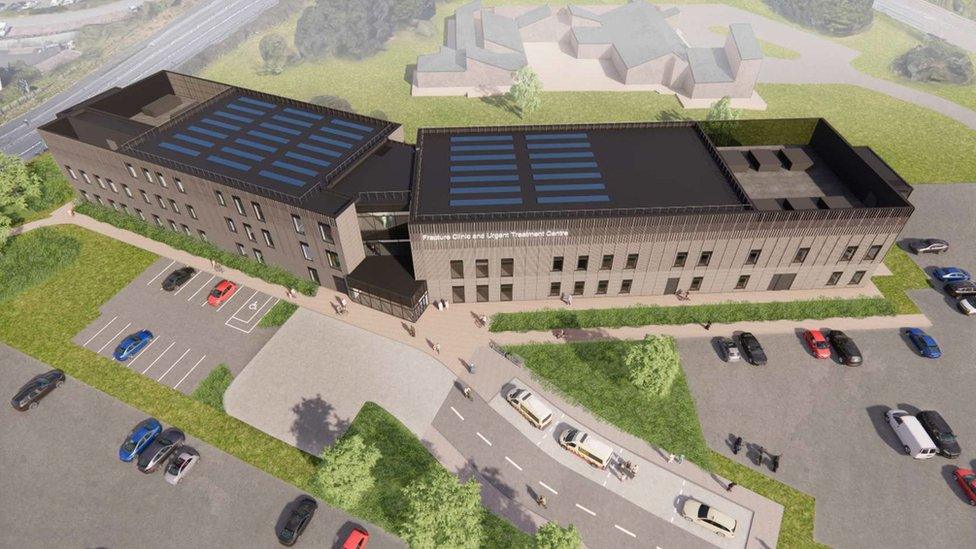
- Published7 February 2024
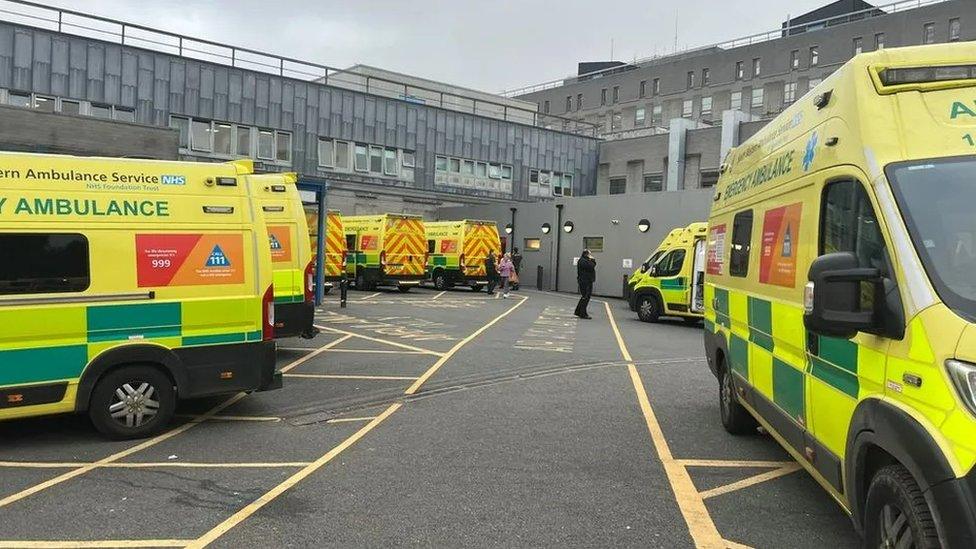
- Published22 January 2024
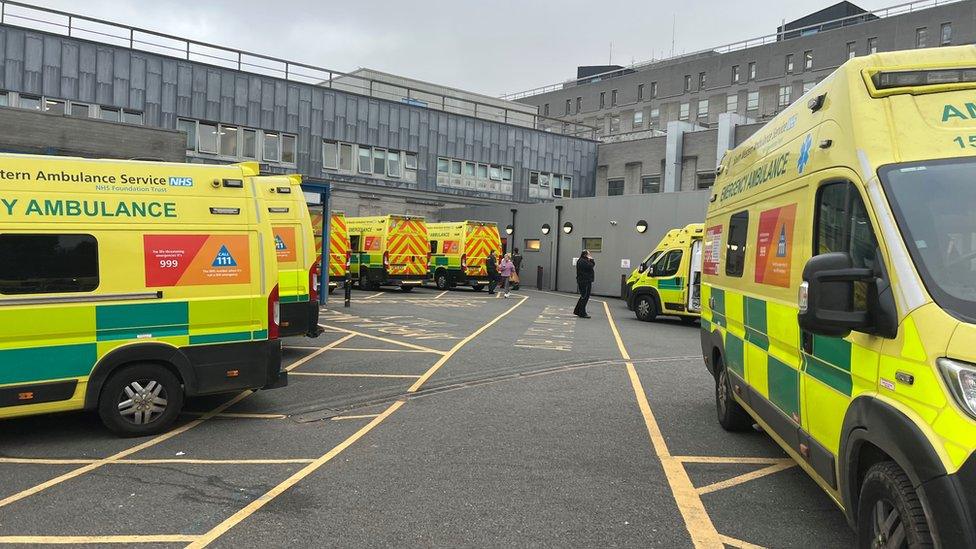
- Published6 November 2023